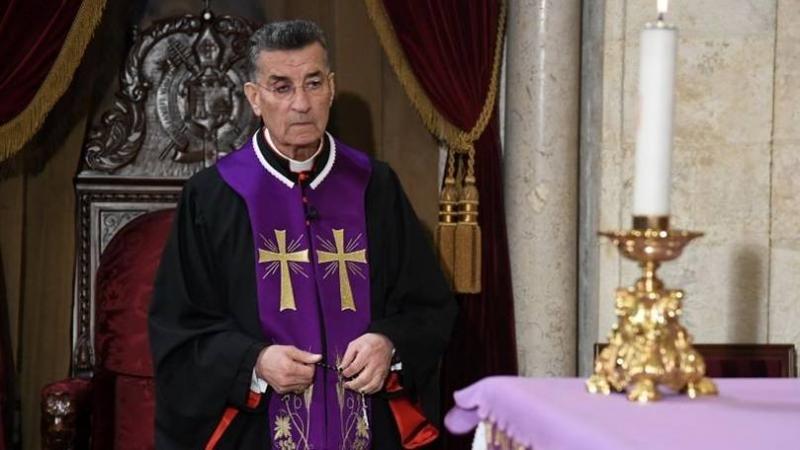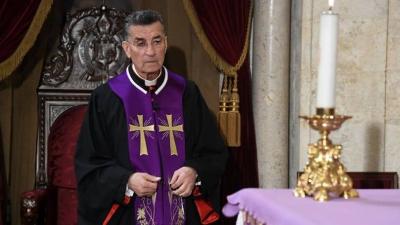The Maronite Patriarch Cardinal Mar Bechara Boutros Raï called for "compensation for the victims of the port explosion," reaffirming the "faith in the resurrection of Beirut and Lebanon, so our country can once again be the beacon of the East, the university of the East, the hospital of the East, the bank of the East, and a homeland of convergence and dialogue between civilizations and religions."
During a mass he presided over for the souls of the victims of the port explosion, Patriarch Raï said, "We raise our voice of anger against all responsible parties, whoever they are, wherever they are, and whatever they are. Those who obstruct the investigation, treating what happened as a mere trivial and incidental event that does not deserve pause for reflection and can be addressed through evasion or compromise as is often done in politics." He continued, "We ask the officials in the state what more do they want from this crime to take action? What more does the judiciary want for it to rise for its dignity, reclaim its role, and return to being the refuge of the oppressed?"
He expressed, "Today, we are facing two crimes: the crime of the port explosion and the crime of freezing the investigation," noting that "the freezing of the investigation is no less grave than the explosion itself because it is a deliberate and intentional act that has fueled discord among the families of the victims." Patriarch Raï pointed out that "there are those who have opted for the easy solution to evade the responsibility of resolving the jurisdiction of the investigation. This is a game of distributing roles among several officials at different constitutional, political, security, and judicial levels, and should they flee from earthly justice or prevent its emergence, they will be led to the judgment of God."
He emphasized that "what is required is for the investigating judge to resume his work towards uncovering the truth of the port explosion," noting that "we do not accuse anyone nor exonerate anyone; citizens want justice, and we refuse that some accused are free while others are innocent and detained." He added, "From experience, we know about politicized justice in Lebanon, and we have demanded since the first day of the port explosion for an international investigation, as the crime could be against humanity if it is proven to be a premeditated act. The complexities of local investigations and political obstacles have justified the suspension of demands for international investigation."
Patriarch Raï assured that "it is not the right of the state to refuse to conduct a local investigation while simultaneously obstructing an international one. It is strange that the crime of the port explosion is foreign to the government's concerns before and after its resignation, and some of its ministers are oblivious to it while others obstruct the course of justice without justification."
He warned, "Do not obstruct the investigation by political pressure on judges, by not granting pursuit orders against those wanted for questioning, and do not impede the judicial formations of the General Assembly of the Court of Cassation by refusing to sign them under the influence of political actors, and do not subject the families of the martyrs to beatings, detention, and interrogation merely for demanding justice."
He also highlighted that "all disasters that occur in the world are preserved in part as a memory of history as a witness to what happened, and this is what the families of the martyrs have been demanding regarding the protection of the silos from collapsing, as they stand as a speaking witness to the so-called crime of the century." He asked, "Why did you not seek assistance from neighboring and friendly countries to extinguish the fires in the silos, as if the intention was to destroy them and erase the memory?!"




